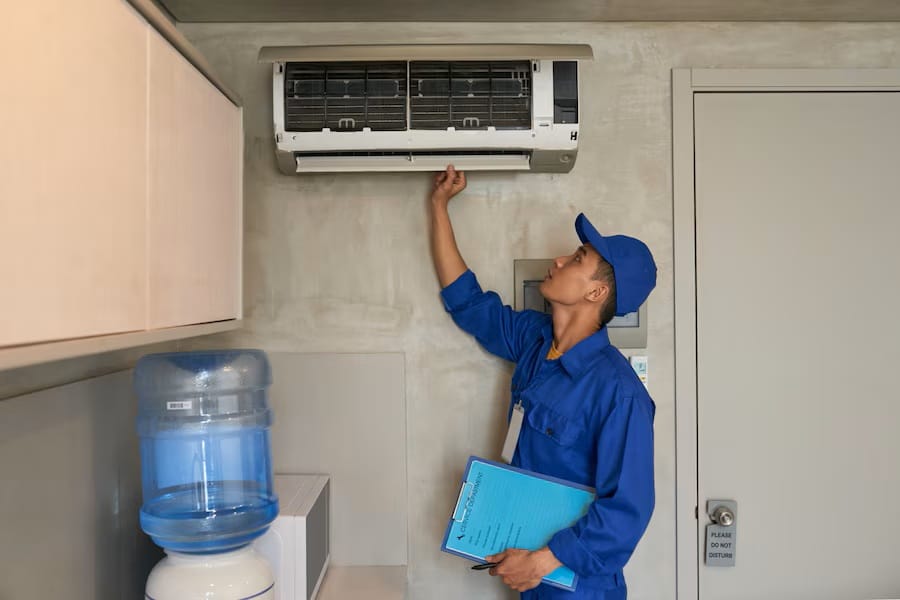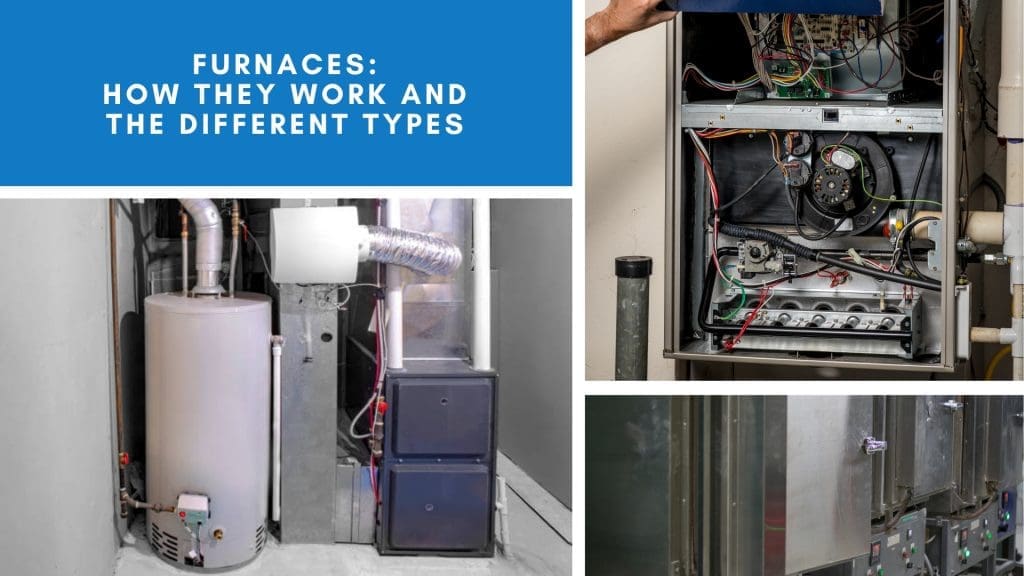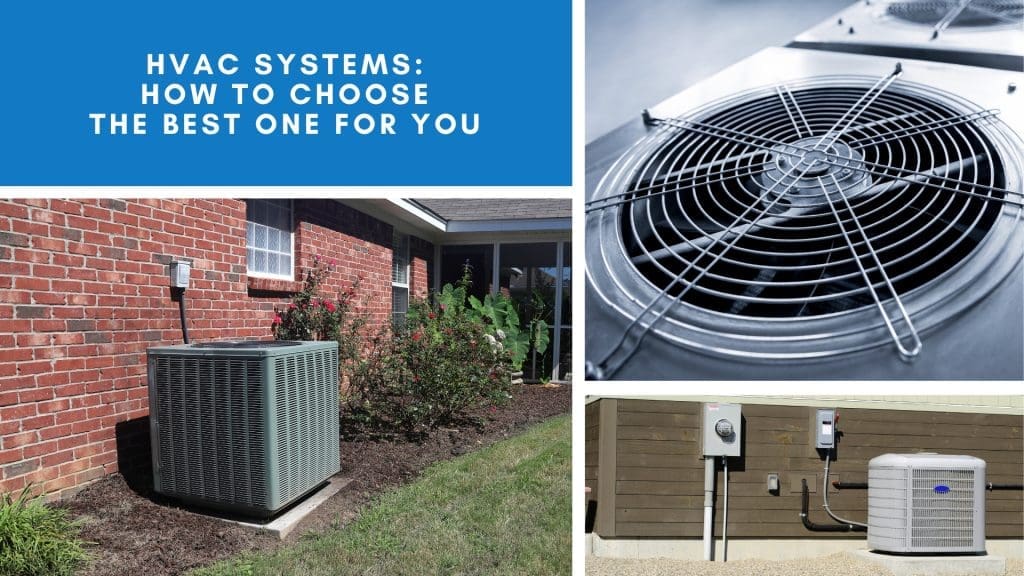When the temperature soars, the last thing you want is a leaking air conditioner wreaking havoc in your home. Whether it’s a pool of water near your window unit or a steady drip from your central AC, dealing with leaks can be frustrating and messy. A leaking air conditioner can not only damage your property but also affect the efficiency of the unit, leading to increased energy bills. Fortunately, understanding the causes and how to fix a leaking air conditioner can help you address the issue effectively. With the right knowledge and approach, you can prevent small problems from escalating into costly repairs. As an HVAC expert, I’m here to guide you through the process with ease and confidence.

Understanding the Problem
A leaking air conditioner is not just an inconvenience; it can be a sign of underlying issues that need attention. Ignoring these signs can lead to more severe damage to your air conditioning system, possibly resulting in complete failure or costly repairs. Water leaks from air conditioning units are commonly due to issues with condensation, drainage, or even installation. Understanding these factors can help you identify and fix problems before they become serious. Let’s dive into the most common reasons your AC might be leaking water and how each issue can impact the overall performance of your unit.
Common Causes of AC Leaks
- Clogged Condensate Drain Line: This is the most common reason for water leakage. The drain line can become blocked with dirt, dust, or mold, causing water to back up and leak out of the unit. Regular cleaning of the condensate line can prevent such blockages. If left unattended, a clogged drain line can lead to water damage and even mold growth in your home, posing health risks.
- Damaged or Rusted Drain Pan: Over time, the drain pan, which collects the condensation, can rust or get damaged, leading to leaks. This is often due to the age of the unit or lack of maintenance. A compromised drain pan can also affect the structural integrity of the AC unit, leading to more significant issues if not addressed promptly.
- Improper Installation: If your air conditioner is not installed correctly, especially window units, water may not drain properly and instead leak inside your home. Incorrect installation can lead to a host of problems, including inefficient cooling and increased energy consumption. Ensuring professional installation is crucial for optimal performance and longevity of your unit.
- Frozen Evaporator Coils: When the evaporator coils freeze, they can eventually melt and cause excess water to drip. This can happen due to low refrigerant levels or restricted airflow. Freezing coils not only lead to leaks but can also cause the compressor to fail, resulting in expensive repairs.
- Low Refrigerant Levels: This can lead to lower pressure in the AC unit, causing the coils to freeze and subsequently melt, resulting in leakage. Low refrigerant levels can also cause the unit to work harder, decreasing its lifespan and increasing energy costs. It’s essential to maintain appropriate refrigerant levels to ensure efficient operation.

Step-by-Step Guide to Fixing a Leaking Air Conditioner
Let’s move on to how you can address these issues. Here’s a straightforward guide to help you tackle the problem. Taking proactive steps can save you from more severe damage and costly repairs in the future. However, remember that if you’re not comfortable doing it yourself, it’s always best to call in a professional. Professionals have the tools and expertise to diagnose and fix issues without causing additional damage.
Step 1: Turn Off the Power
Before you begin any repairs, ensure your safety by turning off the power to your AC unit. This prevents any risk of electric shock while you inspect and fix the issue. Ensuring your safety should always be the top priority before handling any electrical appliance. Unplugging the unit or switching off the circuit breaker are effective ways to cut off power supply.
Step 2: Check the Condensate Drain Line
The first thing you’ll want to examine is the condensate drain line:
- Locate the Drain Line: Typically a PVC pipe connected to the indoor unit. Familiarize yourself with the layout of your unit to identify the drain line easily.
- Inspect for Blockages: Use a flashlight to check for any visible blockages. Look for signs of dirt, mold, or debris that might be obstructing the flow.
- Clean the Drain Line: You can use a wet/dry vacuum to clear any clogs. For stubborn clogs, a plumber’s snake or a long wire brush can be effective. Regular cleaning can prevent future clogs and ensure the smooth operation of your AC unit.
Step 3: Inspect the Drain Pan
Next, check the condition of your drain pan:
- Access the Drain Pan: You’ll find it located under the evaporator coils. Being familiar with your unit’s components can make this process easier.
- Look for Damage or Rust: If the pan is damaged or rusted, it will need replacement. A compromised drain pan can lead to water leaks that damage your home.
- Clean the Pan: If the pan is in good condition, clean it thoroughly to prevent future issues. Regular cleaning can prolong the life of the drain pan and improve the efficiency of your AC unit.
Step 4: Ensure Proper Installation
Check that your air conditioning unit is installed correctly:
- Level the Unit: For window units, ensure they are slightly tilted to allow water to drain outside. Proper leveling is crucial for effective water drainage.
- Secure Connections: Ensure all components are properly connected and sealed. Proper installation can prevent leaks and improve energy efficiency.
Step 5: Check the Evaporator Coils
Inspect the evaporator coils for any signs of freezing:
- Look for Ice Buildup: If there’s ice, it could indicate low refrigerant levels or poor airflow. Freezing can lead to leaks and reduced cooling efficiency.
- Thaw the Coils: Turn off the unit and let the coils thaw completely before restarting. Avoid using sharp objects to remove ice, as this can damage the coils.
- Call a Professional: If freezing persists, contact a professional to check refrigerant levels. A professional can diagnose and fix issues without causing further damage.
Step 6: Regular Maintenance
Routine maintenance can prevent leaks and extend the life of your air conditioning unit:
- Change Air Filters Regularly: Clogged filters can restrict airflow, causing the coils to freeze. Regular filter changes can improve air quality and unit efficiency.
- Schedule Professional Inspections: An annual check-up by an HVAC professional can catch problems early. Regular inspections can prevent minor issues from becoming major repairs.
- Clean the Unit Regularly: Dust and debris can contribute to blockages and leaks. Keeping the unit clean can improve performance and energy efficiency.
When to Call a Professional
While the steps above can help you tackle minor issues, there are times when professional assistance is necessary. If you’re dealing with persistent leaks, suspect a refrigerant leak, or feel unsure about performing any of these steps, it’s best to reach out to a professional. Professionals have the expertise and tools to diagnose and fix complex issues effectively. At LC Heating and Air Conditioning, we’re committed to providing top-notch service and ensuring your comfort. Our team is equipped to handle any HVAC issues you may face. If your air conditioner is giving you trouble, don’t hesitate to contact us for reliable and efficient assistance. We prioritize your comfort and satisfaction, ensuring your home remains cool and comfortable.
Conclusion: How to Fix a Leaking Air Conditioner Effectively
A leaking air conditioner can be a nuisance, but with a bit of knowledge and effort, you can address many of the common causes yourself. Understanding the causes and solutions empowers you to manage your AC unit effectively. However, always prioritize your safety and comfort, and remember that professional help is just a call away if you need it. By maintaining your AC unit regularly, you’ll enjoy a cool, comfortable home without the worry of leaks. Regular maintenance not only prevents leaks but also enhances the efficiency and lifespan of your unit. For any HVAC needs, feel free to reach out to us at lahvaclc.com or call us at (818)858-7080. We’re here to ensure your home’s comfort and satisfaction, providing expert solutions for all your air conditioning concerns.



